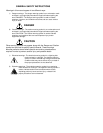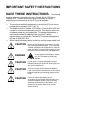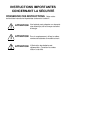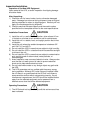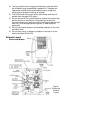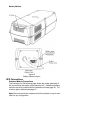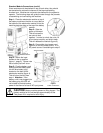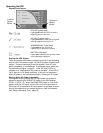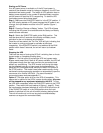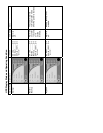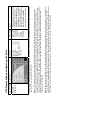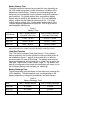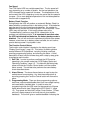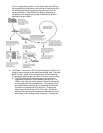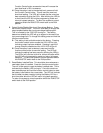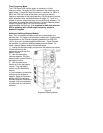Starting on DC Power
If no AC power source is available, or if the AC input power is
outside of the allowable range for voltage or frequency, the UPS can
be started from battery power. The length of UPS operation time on
battery power depends on the number of attached battery modules
and the amount of load the UPS is supporting. To start the UPS
from battery power follow these steps:
Step 1: Make sure the RUN/STOP switch is in the STOP position. If
the UPS is being started on DC power because the AC power is out
of range, the input breaker must be in the OFF position (figure 1,
page 9).
Step 2: Press the “Startup on Battery” button. The UPS will beep
indicating that AC power is not available and the Startup on Battery
mode has been activated.
Step 3: Switch the RUN/STOP switch to the RUN position. This
must be done within 5 seconds of the Startup on Battery mode
activation for the unit to startup using batteries.
Once the unit has started, the “On Line” LED will light, indicating that
the inverter is running and power is available at the output
receptacles. If the RUN/STOP switch is not switched to the RUN
position within those 5 seconds, the unit will return to shutdown
mode.
Stopping the UPS
There are two ways of turning the UPS off: switching from on line to
bypass mode, or completely shutting down.
Option 1: The first option is to place the UPS into bypass mode.
Bypass mode means that if there is AC power available, the UPS will
route power directly from the input source to the connected loads
without any conditioning. The UPS inverter is off during this state,
but the attached loads do not lose power during the transition. To
place the UPS into bypass mode, switch the RUN/STOP switch to
the STOP position. This mode is most often used manually during
maintenance and programming operations or automatically upon the
occurrence of an internal UPS fault. (For more information
concerning bypass mode see appendix E.)
Option 2: The other option is to turn the UPS off completely. This
means that in addition to the UPS’s inverter shutting down, all power
will be stopped to any equipment attached to the UPS. To shut
the UPS down completely switch the RUN/STOP switch to the STOP
position. Then switch the input breaker off (figure 1, page 9). Once
the input breaker has been switched off, all the LEDs should turn off.
(If the RUN/STOP switch is in the RUN position when the input
breaker is switched off, the unit will switch to battery backup mode.
The unit will continue to run for as long as the available battery
reserves can support the connected loads.)



